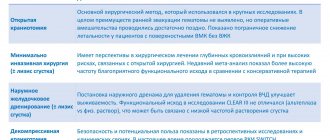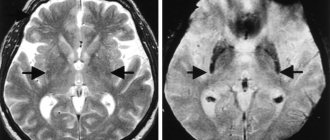10/08/2020 Reading time: 6 min 3981 0
A baby's first birthday is not only a joyful event. For many, this is also the beginning of a period that seems like a complete surprise. Until recently, the calm baby becomes capricious, becomes uncontrollable, screams and cries a lot. This does not mean that he is sick with something or that you did something wrong. Most likely, the child is having a 1-year-old crisis - a natural condition that needs to be given a little more attention. The more carefully and competently parents behave, the easier it will be for both the child and themselves to survive this difficult period.
The essence of the crisis
During the first year of life, a child travels a long way in development. Just 12 months ago he was a tiny, incompetent lump who was not aware of the surrounding reality. And at the age of one he already has some speech skills, he stands on his feet, plays with toys, and tries to walk. It is believed that the cause of the crisis is the stress that occurs in a child during the transition to a qualitatively new stage of development. Psychologists and developmental psychologists say that around the age of one, the infancy period ends, and the baby begins to separate himself from his parent [1]. This is, in particular, due to the fact that the child gets the opportunity to move independently. In addition, his psyche begins to form, his own motivation appears, the ability to express thoughts, desires and preferences arise - he begins to realize himself as an individual. It is difficult and unusual for the child, his worldview changes; reacting to this, he becomes restless.
Causes
A crisis can occur in different ways depending on how the child lives, how actively the parents are involved with him, and how he eats. Some phenomena familiar to this age contribute especially strongly to the crisis state. This does not mean that they should be abandoned: the main thing is to approach the issue wisely and help the child successfully survive difficult times and adapt to the new world.
Change of diet.
New products appear on the child's menu. They are certainly healthy and tasty, but unusual. It's discouraging. Often at this same moment, women stop breastfeeding, which causes the baby to weaken the bond with his mother. He must get used to being independent, and this is quite difficult.
Lots of information.
A child at this age is constantly learning something: words, movements, skills in handling objects. Of course, this is not easy given the huge amount of unfamiliar information. In addition, each new skill or skill causes delight in the child and the realization that he is becoming independent, and parents do not always understand this independence. The baby is trying to gain new knowledge and new experiences.
Physical exercise.
In addition to the fact that the child thinks more and learns a lot, he also puts in a lot more effort than before. As a baby, he could lie in his crib all day, occasionally turning over or traveling in his mother’s arms. Now he has to strain his own muscles to crawl, try to walk, climb from the floor to the sofa and back. Awareness of one's own physical capabilities also provokes a crisis state. The child realizes that he is capable of doing a lot on his own, and therefore he wants to act independently as often as possible [3]. But the baby is not yet familiar with many aspects of the real world and does not understand why he is limited when he tries to do something interesting.
Building social connections.
During this same period, the child tries to build relationships with his parents in a new way. If previously the baby was in a state of merging with his mother, now he has to let her go and understand that he is an independent person. A new type of relationship with parents is being built: through joint activities, and substantive ones at that [2]. This means that the baby is trying to learn how to use familiar household objects by looking at adults and adopting their behavior. In addition, it is during this period that the child begins to understand that he needs to behave differently with different people. For example, you can ask your mother for food, but not your neighbor. With strangers he becomes distrustful, with family he becomes demanding [3]. This is how the child takes his first steps towards socialization and learns to form social connections.
Why is hysteria dangerous?
Surely, your “wise” neighbors have already told you: “It will pass with age!” But they did not say that with age, outbursts of aggression and hysterics go away only in those children whose parents were able to cope with them. If nothing is done about hysteria and “crazy” behavior, then they get worse with age, develop into very unpleasant character traits and remain with the child for life. Advanced neuroses lead to serious mental disorders, insomnia, loss of appetite, chronic fatigue, enuresis, loss of interest in life, nervous tics, etc.
How does the crisis of the first year of life manifest itself?
Each child is individual and different from the other, so no one can give an exact algorithm for his behavior in a crisis. There are only general signs by which you can notice the beginning of a difficult period. The main thing is to be aware of this possibility and not to be scared when a baby, calm a week ago, suddenly begins to behave completely differently. If the manifestations are strong, you can show the child to the doctor to calm the nerves, so as not to miss the symptoms of any disease. But usually a crisis is easy to distinguish from an illness: there are no somatic manifestations, the child is developing well and harmoniously, only character and behavior change.
Loud crying.
The first manifestation of a crisis is bright, expressed negative emotions in response to stimuli. The child begins to cry, and loudly, if something does not suit him. At the same time, tears don’t even necessarily flow. Crying may be accompanied by acts of aggression: the baby may lose his temper, throw a toy, stomp his foot, or try to break something. Usually the reason for such a cry is that the child wants something, but he was not given it, he is indignant and angry. Subsequently, the crying gives way to resentment and disappointment: the cry did not produce results, the baby did not get what he wanted. The offended child begins to cry again, but more quietly, and this time there are a lot of tears. The main thing is to understand: you shouldn’t indulge your baby’s every whim, it’s useless, and even harmful or dangerous.
Sudden movements.
Attacks of aggression, as already mentioned, are accompanied not only by screaming and tears, but also by movements. Children have very active facial expressions and gestures: this is one of their ways to express strong emotions. Therefore, the baby may begin to stomp his feet, wave his arms, and clench his fists. Some children may fall to the floor in hysterics and start rolling around on it. In such a situation, there is no need to immediately rush to give the baby what he wants. One of the conflicts of a child during a crisis is the need to understand the boundaries of what is permitted and to understand that there are things that are still prohibited for him. If you spoil your baby too much and give him everything he wants, you can make life more difficult for yourself and harm his development.
Lively facial expressions.
When a child doesn’t like something, he may frown and make an offended expression on his face. Children at one year of age already perfectly understand simple emotions and actively use them. Another sign of a crisis can be emotional instability: one moment the baby was laughing and happy, and suddenly he starts crying. During a crisis period, facial expressions become especially lively and even a little demonstrative. The kid frowns, compresses his lips, squints. Usually, with such facial expressions, he tries to show stubbornness, which begins to manifest itself especially strongly during the year.
Sleep disorders.
If previously the whole life of a child was subordinated to biological rhythms, now they cease to have their former meaning. The routine is still important for him, but now it is more difficult for the baby to follow it: this has to be done partly consciously, and not just at the behest of the biological clock. The structures of the brain change, the nervous system also changes to suit new age and new conditions. It may be difficult for a child to get used to this. In addition, purely physiologically, he needs less and less sleep, now he is awake for at least 4 hours, and during the day he only wants to sleep a couple of times. This may cause misunderstanding among parents who are accustomed to their child sleeping a lot and for a long time. And the child himself may experience stress due to such changes. Parents should create an optimal sleep schedule for their baby and maintain it.
Essence and features
The main characteristic of the psychological crisis of the 7th year of life is the rapid acquisition of new features that are characteristic of adults. The baby’s psyche loses its naivety and openness, and the inner world becomes more complex. He learns to analyze the actions of others and their reasons, begins to think about his words, and can hide the real motives of his own actions.
The transition from preschool to school age requires a child to take completely new actions: finding his place among classmates, adapting to an unusual social circle. A new schoolchild compares his successes with the achievements of other children, comes to terms with the loss of leadership positions, finds his strengths and weaknesses, and for the first time encounters criticism, competition and even ridicule. This is a blow to children's self-esteem, which not every child can withstand.
The child has to grow up quickly, since in many new situations he can only rely on himself. To do this, you need to quickly develop independence and learn to make decisions. To cope with new tasks, the body rapidly gains strength, endurance, and coordination.
Due to the specifics of upbringing, boys and girls experience the crisis period differently :
- The 7-year-old crisis in boys manifests itself in restlessness, lack of concentration, and an excessive sense of competition. They need to get out their energy, so classes and homework seem like an insurmountable obstacle for them. You need a clear daily routine, discipline, and sports that will help train endurance and expend energy.
- The crisis of 7 years in girls is expressed in aggression, which manifests itself in the home environment. Girls are often excellent students and the pride of the class, but when alone with their parents they show accumulated irritability, which results in hysterics. The reason lies in the burden of responsibilities that are difficult for the child to cope with. Parents need to show maximum attention to the girl’s life, have a heart-to-heart talk, discuss her feelings and emotions.
Timing of the crisis
The concept of “first year crisis” is relative. For some it begins earlier, for others later, and for others it does not begin. Sometimes parents attribute the child's strange behavior to teething or poor health, but in reality the child is simply growing up and moving on to a new stage in life. The same applies to the timing of its completion: remember that each child is individual. Some things, of course, depend on the parents. It is not always possible to influence the timing, and it is completely impossible to cancel the crisis. All that is required of them is to create an atmosphere of love and care for the child, understand what is going on in his head, and try to smooth out the discomfort for the baby and parents. Despite all the desire for independence, during a crisis period, the support of mom and dad is very important for a child.
When does it start.
Nobody can give exact dates. For some, the crisis manifests itself already at 8–9 months, while other children begin to behave differently closer to their birthday, or even after it. The criterion by which one can assume the imminent onset of a crisis is often the ability to move independently [3]. You can check a calendar or table of crisis periods in children, but most often parents learn about the onset of a crisis by its signs. These are changes in the baby's behavior:
- increased desire for independence;
- abandonment of usual rituals, change of tastes;
- stubbornness and capriciousness, mood swings;
- instability of desires, including in relation to parents. A child may simultaneously try to hug his mother and move away from her - this is how the crisis of separation manifests itself;
- jealousy towards other family members.
How long does it last?
Sometimes they say that the beginning of a crisis can be calculated and tracked by the appearance of two marker words in a child’s vocabulary: “give” and “no” [3]. They begin to repeat themselves especially often in his speech. But with the end of a difficult period, it becomes more and more difficult. The duration of the crisis of the first year is individual and ranges from 1 month to a whole year. There is an opinion that the peak of the crisis occurs at 8–15 months of life, then it declines. The opposite opinion says that the crisis situation lasts for a whole year, now intensifying and now weakening. There is still no consensus on this matter, but remember: the baby develops at his own pace. This pace cannot be influenced, but you can make sure that the crisis passes easily and smooth out its manifestations. Then the most acute period will be stopped quickly, and the child will not have injuries that affect his future life.
Recommendations for parents
- Give the baby more independence. Freedom of movement, helping parents with simple things - allow this to children, this is how they explore the world.
- Provide a safe environment for exploration and movement, so that a curious baby does not reach into the outlet or into the toilet.
- Avoid permissiveness. The child does not yet know the boundaries and rules of the real world. It is important to stop it in time, but not too abruptly. There is no need to bribe your baby with toys and sweets: this way he will quickly learn to manipulate. It is possible to prohibit doing something, but this must be justified, and not pressured by authority.
- Do not be rude or aggressive with your child. Constantly pulling your child down, even for harmless reasons, is not only useless, but also harmful to his psyche.
- Monitor your own behavior. Children copy a lot from their parents, whether they want it or not.
- Distract a naughty child. This could be a toy or a shared activity.
Infectious diseases
Crying that is unusually long for a child or, conversely, lethargy or refusal to eat in children of any age is often the first sign of the development of an infectious disease. Whether this is true or not, it becomes obvious literally after a few hours: the temperature may begin to rise, a cough or runny nose may appear. For babies who cannot yet say or show what hurts, loud crying may be a sign of the onset of otitis media. If the ears hurt, there may be neither a fever nor other signs of a cold, it is the sharply changed behavior that will cause suspicion: the child is inappropriately capricious, shakes his head, sometimes screams sharply, begins to cry when changing the position of the head, refuses to eat because this provokes pain. In such a situation, you should definitely call a doctor.
Is it possible to avoid a crisis?
No. Most likely, the crisis situation will make itself felt one way or another. There is no need to be scared or angry with the child: it is not his fault, he is just trying to understand himself in the big world. Remember this. Trying to avoid a crisis will likely only make things worse. If this stage is not passed and completed at the appropriate age, it can later result in injuries and other, more serious problems. Try to quickly accept the changed conditions and adapt to them. For example, games of hide-and-seek or catch-up can help a child cope with the conflict of separation from his mother [3]. In this way, he separates, and nevertheless remains next to her, because sooner or later the mother catches up or finds the baby.









